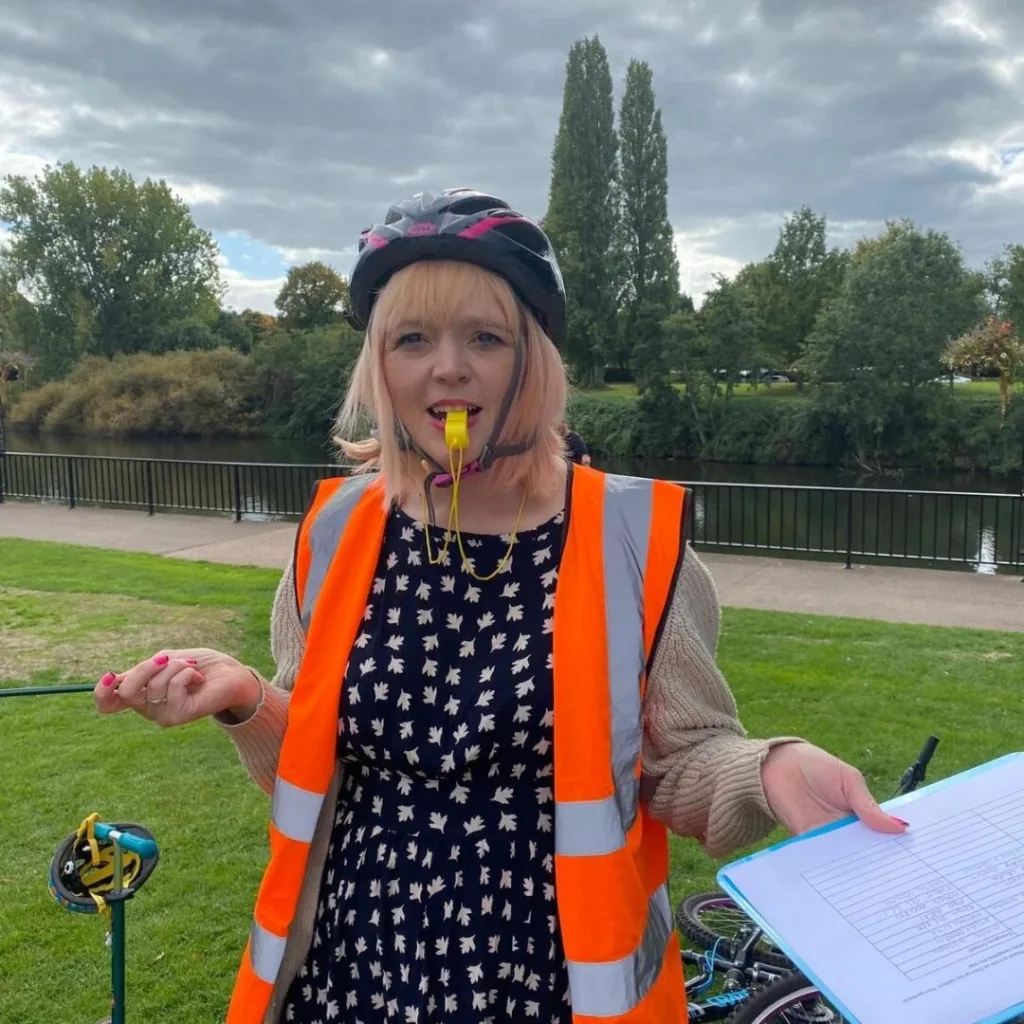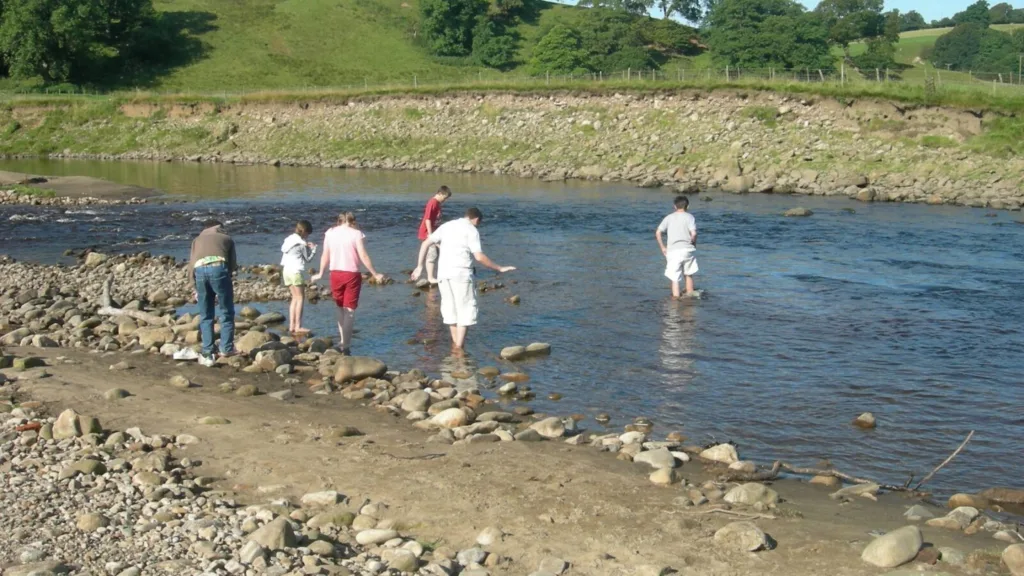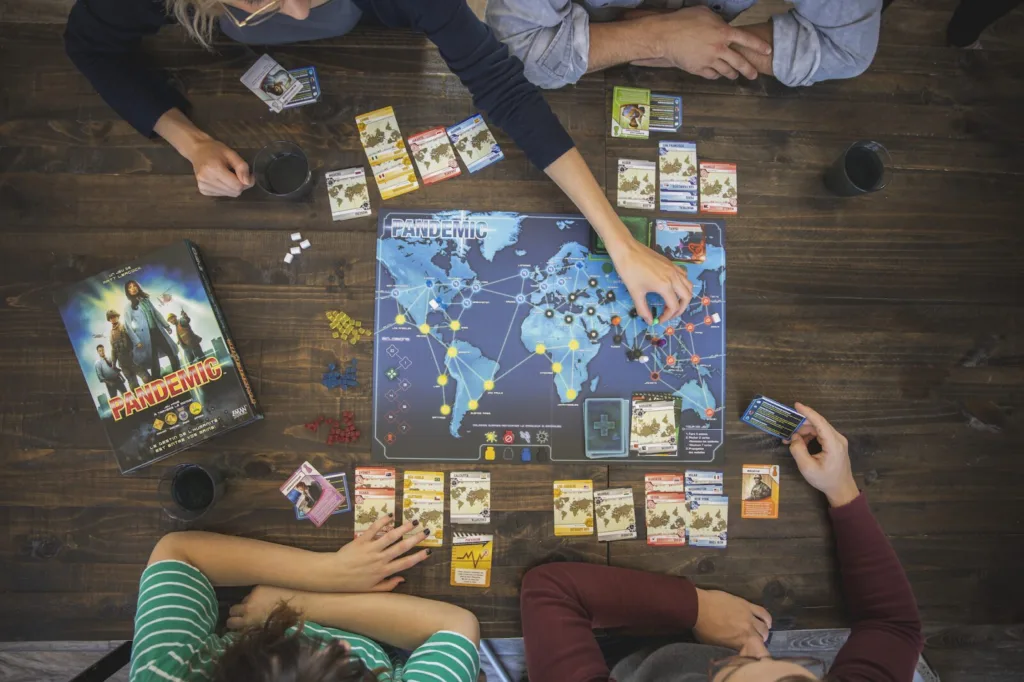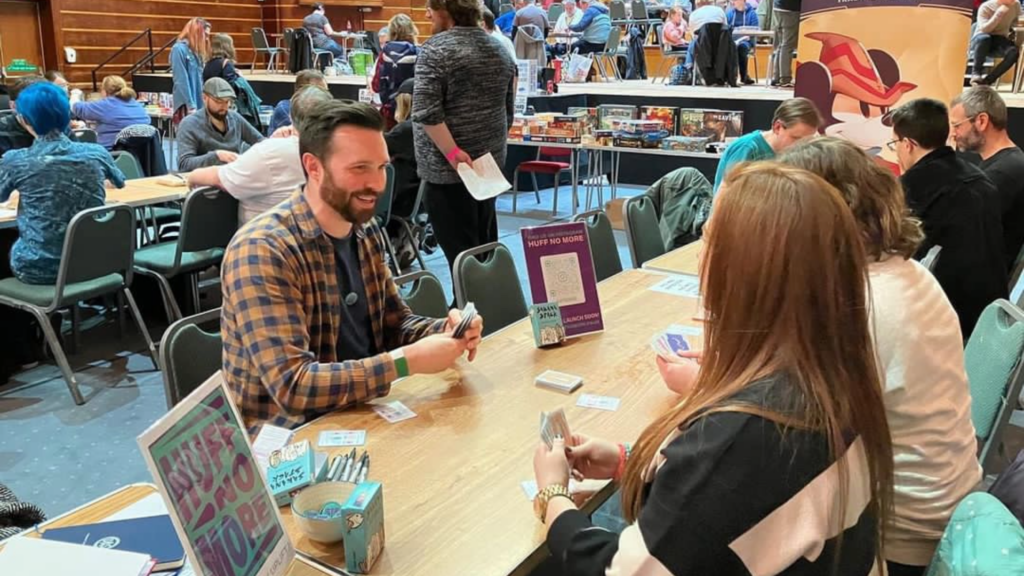This week I’ve got a non-board game designer guest on the blog – Katie Collier is one of the most playful people I know. So much so that that she’s a play advocate and spends much of her time helping people have more play in their lives. You can find her on Instagram, make sure to give her a follow. Fun fact about Katie and I, we were born on the same day of the same year, and we found that out during a fun game called Empires. Read on and enjoy….
Joe: Hey Katie, welcome to the What If? Blog. This is an extra post to go along with this week’s theme of ‘play’ for the @BoardGameProtoHype community. But before we get to ‘play’, can you introduce yourself!
Katie: Yo Joe, excited to be here to chat play! I’m Katie and I spend a lot of time being noisy about the importance of play and advocating for the space and right to do so. Sometimes that involves speaking with and encouraging elected officials at local levels; sometimes it involves reading, writing and thinking; and sometimes it involves making pirate ships out of cardboard boxes.

Joe: Thanks for the intro! This week’s theme for the BoardGameProtoHype community is ‘play’, so I thought it might be fun to bring in voices (like yours) from outside the community to help us think more deeply about play. I’ll start with (probably) a can-of-worms question – what do we mean by play?
Katie: Uh oh! That is quite a contentious question actually but I’ll try… I think ‘play’ is used in all sorts of ways in so many different contexts that it can be quite hard to pin down. The definition that I think I am most comfortable with is play being “freely chosen, personally directed and intrinsically motivated” (wisdom from play theorist Susan Isaacs). Essentially, play is what we do when we are free to choose what we do and how we do it, without any expectation of reward or consequence. However, I could probably spend all day thinking about other conditions that may or may not determine whether something is play. For example, does play always involve creativity or imagination? What about that sense of getting so absorbed in something that you don’t notice time passing? That feels pretty crucial to playful states too.
Essentially, play is what we do when we are free to choose what we do and how we do it, without any expectation of reward or consequence.
Initially I became interested in the field of play because I’d been volunteering and working in educational settings since I was a teenager so I’d seen plenty of children and young people play and in playful states of being. Over those 20 plus years, I studied, read and thought about play an increasing amount and more and more I began to realise how crucial play is for everyone.

Why is play important? So play is just good for us, full stop. From a neuroscience perspective, engaging in play or playful interactions releases endorphins; those “feel good” chemicals that make us happier. I also view playing as an act of micro-resistance. Set against the backdrop of neo-liberal western society, success (and, for many, survival) depends on maximising our potential to earn, and to gather more and more possessions or experiences. The natural rhythm of collective rest and pauses within our year have largely disappeared since industrialisation, or have become more frantic and filled with increasing opportunities to spend money (side eyes Christmas). Taking time to discover what play means to us can take time – we need the space and opportunity to work out what fills our play cup. In a society that encourages being busy as a sign of being successful (“I’ve worked SO many hours this week”/ “I never take a lunch break”/ “I was in the office until 9pm”), taking time to play is a tiny rebellion.
Taking time to play is a tiny rebellion
Play is also a community builder. It brings people together. This may be because your choice of play needs others, such as playing board games in a group, or playing an instrument in a band. Sometimes, your choice of play is more individual. Maybe you love building Lego or coding, and that might not be something you want to do with others. However, it can be an important element in “finding your tribe”, those other human beings who also value the things you love.
Joe: This is brilliant, thank you – as I’m all about tabletop games here and I know you like a good board game, what can you tell us specifically about playfulness and games? Maybe you could start with your favourite game and go from there?
Katie: I do love board games and I think the reason that so many people’s play prescription (the type of play that they gravitate towards most often) is tabletop gaming is that sense of becoming truly lost in an activity. An aim, goal or quest that is delivered to you in brilliant storytelling or a really fun mechanism (I may have over simplified your craft there 😅) can be such a satisfying space to exist and that’s what great games do. Me personally, I love collaborative games like Forbidden Island and (pre 2020…) Pandemic. The strategy discussions and shared jeopardy make it feel much more fun than when I’m playing a game where someone is trying to make sure they beat me. Saying that, I live with a couple of extremely competitive humans and they really find a lot of joy in deliberating and formulating strategy that enables them to win, so I appreciate that different people love different approaches.

Storytelling and world building are also aspects that are really important to me. Having to consider and think about a situation in a novel or playful way I find really fun. I love the game “Happy City” for exactly that reason. It’s not high stakes, it’s super cute and I can build a city with a tree house, ski resort, plant shop and a happy market- dreamy.
Recently we introduced our children to Dungeons and Dragons, and it’s really reinforced my love for storytelling in games. The episodes are having to be carefully planned by my partner but they’ve been counting down to our Sunday night D&D session each week. The challenge has been pitching the quests at the right level – my super sensitive 8 year old doesn’t really want to defeat a Manticore in a bloody battle, but he does want to endlessly offer it pocket meat in the hope he can befriend it. It has reminded me how effortlessly creative children can be at their own world building and storytelling – they can jump into character with very little difficulty, which I’m assuming is because their default mode is that of playfulness by nature of being children. When I resume a session with the group I started a campaign with, I have to spend some time quite self consciously transitioning into the session before I feel at ease again. This is a purely anecdotal musing but I think it’s worth further thought.
It has reminded me how effortlessly creative children can be at their own world building and storytelling – they can jump into character with very little difficulty.
I think for games designers, elements that allow players to really reach that state of “wow where did the time go” are what’s key to playful games. Lots of this comes down to the story that the game is creating – how much do I believe and invest in this scenario? Personally, I’m also a big fan of novelty and quirkiness. I wonder if we had a discussion around “what makes a bad game?” (chocolate teapot territory) if this would give us some of our answers.
Joe: Thank you. That sense of getting lost in something is really important to me when I’m designing – in fact it happens whilst I’m doing the design work. Let’s follow your suggestion; from a play theory perspective, what makes a bad game?
Katie: I was asking for that wasn’t I? I will attempt to force my pondering into an actual answer. If I’m playing a game and just think “well so what?” then I think that’s quite damning isn’t it? I think there needs to be something quirky, novel or maybe just a bit silly – is one or more of these present in most/all games?
I was wondering if I could sit down and try to create a terrible game to illustrate the point but actually that sounds quite playful. It has a specific purpose and is a bit silly – sounds like play to me.
Thank you, Katie, for sharing your expertise on the blog this week. You can find Katie hanging around on Instragram, please do give her a follow. Once you’ve done that, make sure to subscribe to the blog for weekly conversations with incredibly interesting humans.



I love the idea of storytelling as a core element of great games. What board games do you think do an exceptional job of blending storytelling and mechanics seamlessly? I personally haven’t played much games like that.
I have to say I really enjoy the encounter cards in scythe, they make me immerse a bit more into the world.